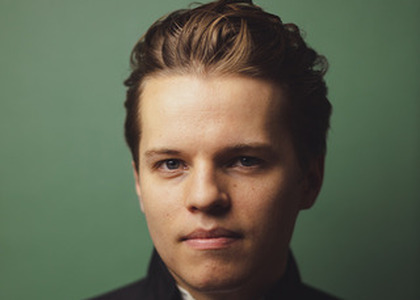> [Archived] Interviews

Interview with conductor Adam Hickox
Wednesday, November 2nd, a new concert held at at the Radio Hall by the chamber Orchestra of the institution. More details about the event from the discussion that our colleague, Norela Costea had had with conductor Adam Hickox:
Mister Adam Hickox, what can you tell us about the program that you chose to present along with the chamber Orchestra?
To put it simply, there are three pieces which I love, but which are still new for me. Yet I believe that they work fantastically together. I have been wanting to conduct Symphony No. 44 by Haydn for a long time now, because it is, I believe, the most profound piece of the classical composer. I have chosen to add it to Symphony No. 38 by Mozart, a well known but also complex score. The Czech Suite by Dvorak plays an intermezzo role between the two very profound compositions, but at the same time, I think that Czech Suite represents a lesser-known piece that I would be glad to show to the public.
How did the first meeting with the Camera Radio Orchestra?
We have had a really pleasant first meeting. I believe that for many of us, Dvorak's piece is new, so we are working together in order to figure out the appropriate way in which we can interpret it, and this is a really fascinating process. On the other hand, Mozart's Symphony No. 38 is well-known among the Orchestra's members. They know it so well that I have a feeling that I'm also equally learning from them as we are searching together for the best expressive elements, and the outcome is amazing.
What would be the most important aspect when leading a chamber orchestra versus a symphonic one?
From the conductor's point of view the difference is noteworthy. When I am standing in front of a symphonic orchestra I feel like I am on charge of a ship, on the ocean. A chamber orchestra doesn't need a conductor to that extent. They don't need me for openings, but to guide them until they get to the suitable performing manner, so that they can play as expressive as possible, and I, personally really like this job.
Translated by Georgiana Morozii,
University of Bucharest, Faculty of Foreign Languages and Literatures, MTTLC, year I
Corrected by Silvia Petrescu














